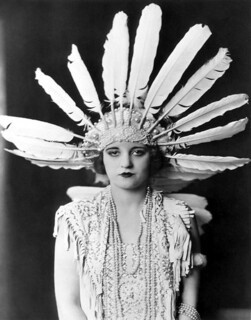When the Republicans were right
R.W. Johnson · Women's Suffrage
It was the 90th anniversary this week of the achievement of women's suffrage in the United States. On 18 August 1920 Tennessee became the 36th state to ratify the 19th Amendment – ‘The right of citizens of the United States to vote shall not be denied or abridged by the United States or by any State on account of sex’ – and it passed into law.
For those who remember how the Equal Rights Amendment was defeated in the 1970s thanks to die-hard Republican opposition, it may come as a surprise to realise how much women's suffrage was a Republican achievement. When the House of Representatives passed the 19th Amendment in May 1919 it did so by 304 votes to 89, with Democrats only 104 to 70 in favour but Republicans 200 to 19. In the Senate, Democrats were in favour only by 20 to 17 but the GOP voted for it by 36 to 8.
The essential reason was race. In 1920: The Year of the Six Presidents (2007), David Pietrusza describes how Woodrow Wilson and other leading Democrats, having realised that the Republicans were determined to force the amendment through, decided to reverse their earlier opposition and go along – after all, they would soon have to face a partly female electorate. But such pragmatism was bitterly opposed in the South. Senator Flynt of Georgia pointed out that the northern suffragette leaders were associates of those ‘who sought to put the black heel on the white neck and place the Southern Negro in power’.
Once it had been passed by Congress, the amendment had to be ratified by three-quarters of the 48 states. Of the 36, 27 were Republican and two were non-partisan. In Tennessee, the anti-amendment forces were led by Josephine Pearson, who insisted that the forces behind the amendment would begin by cancelling state sovereignty, would continue by granting ‘Negro woman suffrage’ and would end with the ultimate evil of race equality.
Women contributed heavily to the huge Republican landslide in the 1920 elections. In strong Republican areas in the North voter registration increased by well over 100 per cent as women registered en masse but in the Democratic South only around 35 per cent of women voted. Most of them voted Republican. In Huntsville, Alabama, for example, William Bankhead (a future Democratic speaker of the House) only just held on to his seat. His daughter, Tallulah, not only went on to become one of the most famous actresses of her epoch but was wondrously outspoken (‘I only went to Hollywood to fuck that divine Gary Cooper’) and a leading liberal, supporting Harry Truman in 1948 and booing the Dixiecrats. Her career was, in many ways, just what Pearson et al. had been afraid of.
But in 1920 women's suffrage, like Prohibition, got its chance because of the huge revulsion against Woodrow Wilson, his war and his League of Nations. Prohibition didn't last any more than isolationism did but women's suffrage has only gathered strength. And the GOP got rather more than it bargained for.

Comments
Class is the one issue on which the Republicans could never be called left-wing, of course - Carnegie himself employed Pinkerton's to break strikes. But then, the Democrats were never exactly radical themselves.